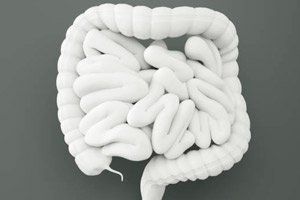
All iLive content is medically reviewed or fact checked to ensure as much factual accuracy as possible.
We have strict sourcing guidelines and only link to reputable media sites, academic research institutions and, whenever possible, medically peer reviewed studies. Note that the numbers in parentheses ([1], [2], etc.) are clickable links to these studies.
If you feel that any of our content is inaccurate, out-of-date, or otherwise questionable, please select it and press Ctrl + Enter.
"Stem" T cells may be the cause of ulcerative colitis
Last reviewed: 02.07.2025
 ">
">Scientists at the La Jolla Institute for Immunology (LJI) have discovered that an unusual population of T cells may be causing harmful inflammation in people with ulcerative colitis, an autoimmune disease that damages the colon.
Their new study, recently published in the journal Nature Immunology, is the first to show a link between "stem" T cells and ulcerative colitis in patients.
"We have identified a population of T cells that may be important for disease and contribute to relapse in patients with ulcerative colitis," says LJI Professor Pandurangan Vijayanand, MD, PhD, who co-led the study with Professor Mitchell Kronenberg, PhD.
The researchers hope to target this T-cell population with drug therapy in the future. "These cells could be a very important target for the treatment of ulcerative colitis and perhaps other autoimmune diseases," Kronenberg says.
Research into the origins of ulcerative colitis
T cells normally help the body fight pathogens such as viruses and bacteria. In autoimmune diseases, T cells mistakenly attack healthy tissue. In patients with ulcerative colitis, T cells cause chronic inflammation in the colon, leading to severe tissue damage and potentially dangerous complications. About half of patients respond to therapy, but relapses are very common.
For the new study, the LJI team combined their expertise in immunology, cell biology and genomics to answer an important question: Where are all these harmful T cells coming from?
Regular T cells interact with their targets (such as viral antigens) and over time become dysfunctional or even die when re-stimulated. The body wants T cells to downgrade their activity or die after doing their job to prevent unnecessary inflammation.
But T stem cells have found a way to self-renew. "These cells can self-renew and give rise to stem cells as well as truly pathogenic cells," Kronenberg says.
One characteristic of some stem cells and T stem cells is the TCF1 gene, which controls the expression of many other genes. Previous studies have shown that these T stem cells are common in animal models of autoimmune diseases, including diabetes and ulcerative colitis.
When the researchers looked at the genes expressed by these T stem cells, they found that the TCF1 gene was a signature feature that distinguished these cells from other types of T cells.
Detailed study of patients
LJI researchers studied colon tissue samples from patients with ulcerative colitis. They looked closely at the transcriptomes of T cells to determine which genes were active in these cells.
This allowed the scientists to identify different subtypes of T cells in the affected tissues. In patients with ulcerative colitis, there was a large population of stem T cells in the colon, especially in inflamed areas.
This correlation didn’t necessarily mean that stem cells were causing the disease. To find out if they were the culprit, the researchers turned to animal models and looked at the genomes of T cells in the guts of mice with colitis. They found that the stem cells were likely the precursors to several types of pathogenic T cells.
The researchers also showed that they could induce ulcerative colitis by repeatedly injecting T stem cells into healthy mice. The ability of these cells to maintain pathogenic potential illustrates their "stem" function.
The researchers then modified some of the stem T cells to be much less stem-like by deleting the TCF1 gene. When they transferred these cells into mouse models of ulcerative colitis, the mice had fewer pathogenic T cells.
The mouse data strengthened the idea that these stem cells may be responsible for maintaining ulcerative colitis and causing relapses in human patients.
"In a mouse model of colitis, we were able to show that T stem cells are required to maintain the disease," Kronenberg says. "These cells may be the factor that continually maintains inflammation upon repeated antigen stimulation."
The researchers stress that the current findings are basic scientific discoveries. "They require extensive validation before they can lead to therapeutic interventions in humans," Vijayanand says.
Vijayanand is particularly interested in studying T stem cells in patients with ulcerative colitis who relapse, while also conducting research to target these cells in the future.
Kronenberg hopes the research will lead to new therapies for ulcerative colitis that will help more patients and reduce the risk of relapse. He believes that new understanding of T stem cells may also help shed light on the origins of other autoimmune diseases.
